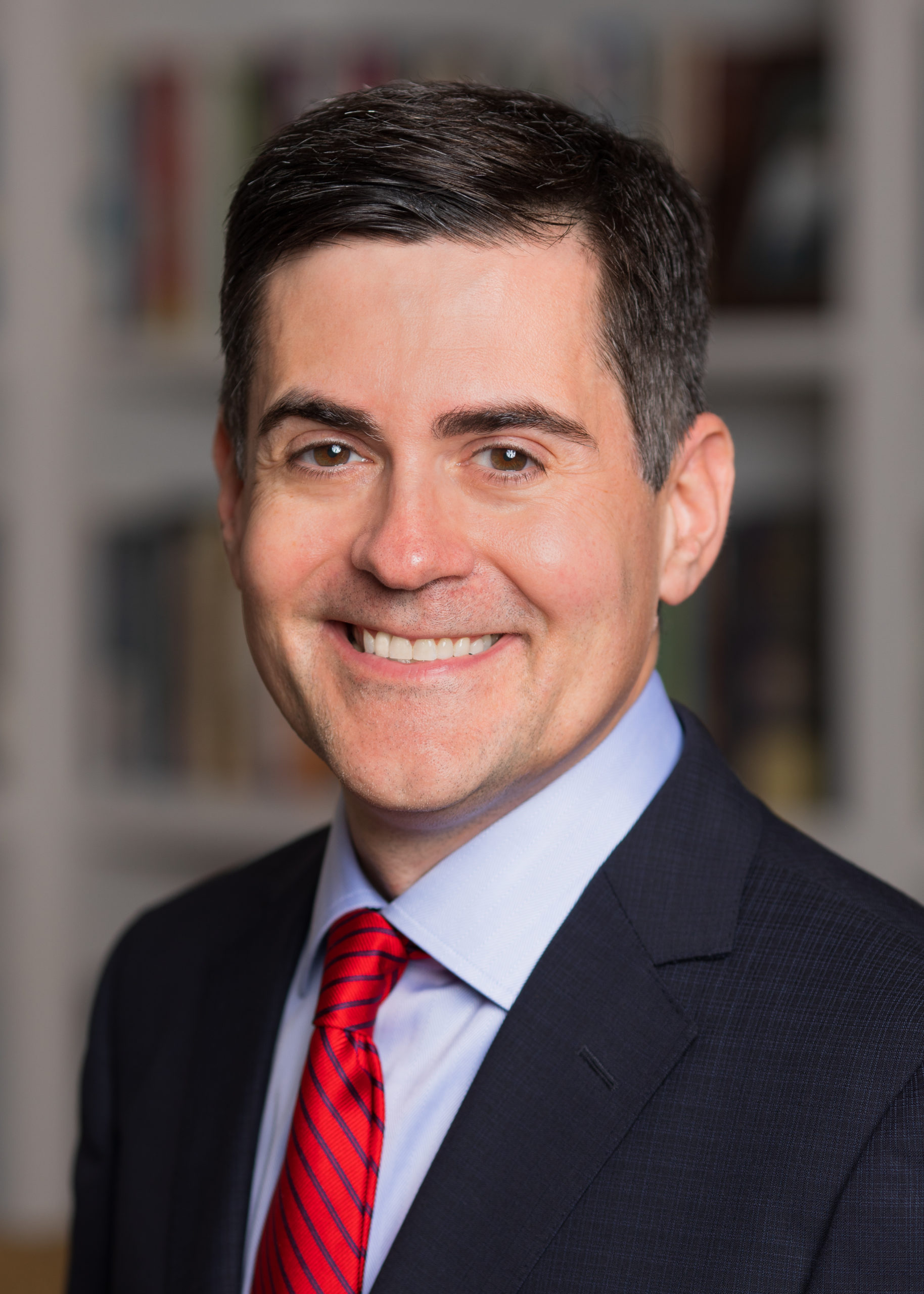What Antirefugee Rhetoric Does to the Soul
September 7, 2021
By: Dr. Russell Moore
The horrifying images out of Afghanistan this week—as the country fell to the Taliban—evoked memories of other such moments for many of us. Some of us saw in the videos of the crowds pleading for a place on the US Air Force plane an echo of the image of the last helicopter out of Saigon. Some of us, seeing a man falling from the plane to his death, remembered the awful video of people leaping from the World Trade Center in 2001. All those things came to mind for me, with one addition: a senior adult Sunday school class.
The Sunday school class came to mind because I remembered a conversation I had with a worried and underfire pastor several years ago. His church was supporting a ministry—maybe it was Samaritan’s Purse Christmas boxes; I don’t remember—for Syrian people in refugee camps in the Middle East. It’s hard to imagine anything less controversial for a Christian church. After all, Jesus commanded us to take the gospel to the uttermost ends of the earth, and the Bible everywhere teaches us to show mercy to those in peril. As the old hymn puts it, “Rescue the perishing / Care for the dying.” Yet this pastor didn’t expect the backlash.
Starting in a senior adult Sunday school class and then ricocheting across the congregation came the murmurings that this was the first step toward Syrian refugees coming to America, maybe even to their neighborhoods. These were terrorists, some said. They were part of an intricate George Soros plot to take over the country, others said. The very words Syrian refugees were enough to cause the tumult, because people had been primed by talk radio and cable news to see the people involved as scary and threatening.
Of course, this happens all the time—and the objects of fear always move around, with no one ever exonerating the people they used to demonize or pointing out that they are applying the same exact rhetoric to another group of people the next time. The “America First” isolationists showed this attitude with the possibility of Jewish refugees from Nazi Germany. In my own Gulf Coast Mississippi community, some were scared of the Vietnamese refugees who settled there after the fall of South Vietnam. During the Ebola situation several years ago, some of the same people who claim mask-wearing and vaccine mandates are a “surrender to fear” were cheering on those who wanted to refuse entrance into the country to American missionary doctors who had treated patients with Ebola. They knew what they were getting into when they went, some told us, and they should bear the consequences.
And now, within hours, we have seen the sort of rhetoric turned toward what will no doubt be a wave of Afghan refugees fleeing for their lives from the Taliban, especially those who, when our country needed it, helped us with translation and other matters. Cable news hosts sarcastically asked why we would think these people are our responsibility. Others went ever further, using the language of “invasion” and the racist tropes of a “great replacement” of white people. All this was predictable and will have real consequences for men, women, and children who can see the difference between the sword of the Taliban and the Statue of Liberty—and see the Lady in the harbor as a hope.
That’s not the only problem, though. This sort of antirefugee rhetoric doesn’t harm only refugees. It also hurts the people seeking to use it, as well as the people used by it. There’s a danger here not just to human life and to national security and to American honor but also to the consciences and souls of the people who are scared and angry.
There’s no danger, of course, in debates about how many refugees should be accepted into the country, how many the country can reasonably evacuate and settle. Hard decisions have to made there, and often those decisions will end up hurting people. Not everyone can find a place of refuge in the United States—even when United States policies are partly to blame for their needing it. But those decisions are made on prudential grounds. That’s very different from the sort of opportunistic denigration of refugees themselves, along with the implication that caring what happens to them is somehow weak or nefarious.
Reinhold Niebuhr, the prophet of “Christian realism” during the Cold War, argued that the sinfulness of the world called not just for ideals but for a steely eyed determination that could sometimes be morally hazardous. At the same time, though, he wrote, “It is a terrible heresy to suggest that, because the world is sinful, we have a right to construct a Machiavellian politics or a Darwinian sociology as normative for Christians.”
Most people will not have the power to affect, one way or the other, what happens to imperiled Afghan people. Everyone, though, is vulnerable to seeing heart attitudes toward those people—or some other group—channeled into the idolatry of ethnonationalism or hostility toward those who are “foreign” or vulnerable or in need. Asking about the limits of what can be done to help a group of people is one matter. But when you hear yourself asking “Who is my neighbor?” you are in spiritually dangerous territory.
And when the limbic system is manipulated—for clicks or viewers or political mobilization or any other reason—one can easily find oneself absorbed into the kind of group identity most sought after right now: the bonds formed around mutual fear or loathing of somebody else. As Eric Hoffer warned in The True Believer, “We do not usually look for allies when we love. Indeed, we often look on those who love with us as rivals and trespassers. But we always look for allies when we hate.”
This is not, though, the way of Jesus Christ. The way of Christ sees the image of God, and thus a signpost to Christ Jesus, in every human being—an image we are called to pay most attention to when people are poor or widowed or orphaned or endangered (Matt. 25:31–46). Yet to do so requires not just compassion for the hurting but also a reframing of one’s own storyline. “Do not mistreat or oppress a foreigner, for you were foreigners in Egypt,” God said through the Moses (Ex. 22:21). And again, “Do not oppress a foreigner; you yourselves know how it feels to be foreigners, for you were foreigners in Egypt” (23:9).
A mind shaped by such a storyline doesn’t guarantee that we will all agree on what can or should be done in specific circumstances. We sometimes will disagree on, for instance, refugee policy as to what achieves the objectives needed. What such a mindset does mean, though, is that we will not disagree on refugees themselves. There is a difference between “What can we do?” and “Not my problem,” between wrestling through best alternatives and using disgust at human beings to shore up voters or viewers or givers. That second path leads, in the long run, to consciences that are seared, progressively unable to be alerted when the soul says, “This sounds more like Pharaoh than like Jesus.” That’s a dangerous place to be.
I don’t agree with my friends who say that capital punishment is always a violation of the Sixth Commandment or the Eighth Amendment, though I am always open to changing my mind if persuaded. But surely we can see a difference between that debate and the person who gleefully delights in an execution, with a “Fry, Baby, Fry” sign held aloft outside the penitentiary.
I know some people who think that federal War on Poverty programs hurt the poor more than help them. One need not agree with that to see the difference between their view and that of the person who mocks the poor as “parasites” and “takers.” The question is not just what the attitude does to the poor but also what it does to the conscience of the person holding it.
Men, women, and children are about to die. Others are about to flee into homelessness and chaos. Some of them are our brothers and sisters in Christ. Some of them may be our future brothers and sisters in Christ. All of them are created and loved by the God we serve. We can live with those who ask us to weigh the pros and cons of decisions we should make. We cannot live with those who would tell us to warp our own souls as we do so.
That doesn’t start on the National Security Council or in the Department of Homeland Security. It starts in Sunday school.
This post originally appeared in Dr. Moore’s “Moore to the Point” newsletter on August 19. You can sign up to receive that newsletter or read additional thoughts from Dr. Moore on welcoming Afghan refugees.
 Dr. Russell Moore is Public Theologian at Christianity Today and Director of Christianity Today’s Public Theology Project. Dr. Moore is the author of several books, including The Courage to Stand: Facing Your Fear Without Losing Your Soul, Onward: Engaging the Culture without Losing the Gospel and The Storm-Tossed Family: How the Cross Reshapes the Home. A native Mississippian, he and his wife Maria are the parents of five sons.
Dr. Russell Moore is Public Theologian at Christianity Today and Director of Christianity Today’s Public Theology Project. Dr. Moore is the author of several books, including The Courage to Stand: Facing Your Fear Without Losing Your Soul, Onward: Engaging the Culture without Losing the Gospel and The Storm-Tossed Family: How the Cross Reshapes the Home. A native Mississippian, he and his wife Maria are the parents of five sons.






